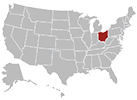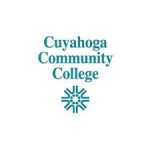
Patient access representatives help hospital clients process paperwork, handle billing, and receive high-quality care.
This job is growing at a 7% rate nationally and provides Ohio residents with a high-earning job after minimal training.
Do you want to start a medical career that really helps people?
Then consider this fascinating job option.
Page Navigation
Steps to Become a Patient Access Representative in Ohio
Becoming a patient access rep (PAR) in Ohio is a relatively easy process.
While it does require some paid training and internships, it’s not challenging.
Do you need a college education?
Thankfully, no.
However, health degrees may help you find a job more easily.
Step One: Finish High School/GED
Did you finish high school?
That’s all the education you need beyond certification to start this career.
Did you drop out of school?
Don’t worry!
You can earn a GED instead.
Will hospitals accept a GED?
Absolutely.
Having this basic education shows employers you can handle basic math and read fluently.
It’s also necessary to get certification.
Where can you earn a GED?
Most adult-education schools or alternative high schools provide GED programs.
Step Two: Complete Your Certification
Patient access representative certifications come from many organizations.
Is there any option that most hospitals in Ohio accept?
Yes:
the National Association of Healthcare Access Management cert.
This program includes Certified Healthcare Access Associate (CHAA) or Certified Healthcare Access Manager (CHAM) options.
Should you take the certification test without training?
Absolutely not.
A training program helps you learn important skills, like proper paperwork filing.
It also helps you pass the test more easily.
Are school-based training options available in Ohio?
Yes.
Step Three: Volunteer at a Hospital
Volunteering is an excellent way to get job experience.
It’s a common option for people who can’t find a job in this field.
Why?
Well, just look at a typical job listing.
How often do they ask for previous experience?
Most of the time.
How do you get that experience without getting a job?
Well, by volunteering.
Often, you can find positions in the accounting and billing departments.
Job duties include filing paperwork and following proper billing procedures.
How long are the hours?
That depends on the position.
Some might last all day:
others just a few hours.
Step Four: Start an Internship
Would you rather jump right into working?
Try finding a patient access rep internship.
What is an internship?
It’s an (often) unpaid or low-pay job that gives you job experience.
In the past, these were often called apprenticeships.
Should you try to find a paid option?
Yes, but understand that not all hospitals offer them.
Why not?
Internships are typically unpaid because hospitals can’t afford full-time staff. However, some provide low-pay options.
For example, you might get paid a stipend for expenses or minimum wage.
Step Five: Find a Full-Time Job
How long should you volunteer or work internships?
That depends on the job.
Typically, hospitals want 3-4 years of experience before they hire a patient access rep.
Do you not get paid?
Not necessarily:
some hospitals provide paid training.
This training pairs you with a professional.
They’ll guide you through the learning process using hands-on education.
Thankfully, you do get paid for this position.
Will you get paid a full-time wage?
No, but some people transition straight into a job after finishing training.
Schools in Ohio
Patient access rep college degrees are not available in Ohio.
In fact, most states don’t provide these programs.
However, Ohio does have a community college course that can prepare you for this career.
Should you try it out?
If you want guided educational support, yes.
Cuyahoga Community College
Cuyahoga Community College in Cleveland provides a patient access rep certification class.
You’ll cover subjects like medical terminology, electronic health records, and PAS fundamentals.
Will you learn about billing?
Absolutely!
You also practice reimbursement lessons.
This virtual program guides you through the certification process to help you learn important skills.
Do you earn a degree upon completing this course?
No, but you will be prepared for your certification test.
Are you guaranteed to pass?
Only if you study hard.
Patient Access Representative Schools in Ohio – Summary Table
Top 1 Schools in Ohio
| School Name | Address |
|---|---|
| Cuyahoga Community College | 4250 Richmond Rd, Highland Hills, OH 44122, United States |
Salary
Will you make a living wage as a patient access representative?
Absolutely!
You’ll earn no less than $44,971 and up to $55,243 in Ohio.
Expect an average of $49,422.
Are you likely to hit the average?
Yes, or even exceed it, depending on your area.
Does this career have chances for advancement?
Absolutely!
Many people transition to management roles, including senior patient access representative jobs.
Your pay will increase with your responsibilities, which will help you make even more money.
Annual Salary Range:Average Salary of Patient Access Representatives in Ohio
| City Name | Salary |
|---|---|
| Columbus | $49,477 |
| Cleveland | $49,743 |
| Cincinnati | $49,277 |
| Toledo | $48,693 |
| Akron | $48,380 |
| Dayton | $48,884 |
| Lima | $47,569 |
| Youngstown | $47,458 |
| Canton | $47,390 |
| Lorain | $49,217 |
Regional Salary in Ohio
| Region | Employed | Avg. Annual Salary | Avg. Hourly Pay | Top 10% Annual Salary | Bottom 10% Annual Salary |
|---|---|---|---|---|---|
| Akron, OH | 490 | $50,880 | $24.46 | $71,710 | $35,990 |
| Canton-Massillon, OH | 170 | $46,590 | $22.4 | $62,980 | $32,040 |
| Cincinnati, OH-KY-IN | 1,480 | $52,250 | $25.12 | $71,850 | $37,280 |
| Cleveland-Elyria, OH | 1,260 | $54,780 | $26.34 | $74,230 | $37,120 |
| Columbus, OH | 1,300 | $53,820 | $25.87 | $74,780 | $37,280 |
| Dayton, OH | 440 | $50,220 | $24.14 | $71,130 | $35,910 |
| Lima, OH | 130 | $46,760 | $22.48 | $69,250 | $31,820 |
| Mansfield, OH | 40 | $44,570 | $21.43 | $62,160 | $34,200 |
| Springfield, OH | 40 | $44,530 | $21.41 | $60,090 | $27,030 |
| Toledo, OH | 350 | $47,100 | $22.64 | $62,550 | $35,430 |
| Youngstown-Warren-Boardman, OH-PA | 160 | $41,800 | $20.1 | $57,430 | $30,270 |
* Employment conditions in your area may vary.
Frequently Asked Questions
How often do I need to renew?
Do you need to renew every year?
Thankfully, no.
Most PAR certifications last 3-4 years.
However, you must renew before your expiration date to keep your cert active.
Do you need to take a new certification class?
Thankfully, no.
Instead, you just need to take a short recertification test.
This exam tests your general PAR knowledge.
Where can I find a job?
Ohio, thankfully has many high-quality hospitals that hire patient access reps.
For example, Ohio State University Wexner Medical Center hires many PAR employees.
Other hospitals include e Cleveland Clinic and the University Hospitals Medical Center.
Do they offer paid training?
Typically, yes.
Talk with your facility supervisor before assuming.
Is this a well-paying job?
The highest-paid patient access rep position in Ohio earns about $55,243, with an average of $49,422.
That compares favorably to the average wage in Ohio: $49,853.
Even better: you don’t need an extensive education to start this career.
Why does this matter?
You won’t be in debt when you start your job, meaning you can save even more money.
Can I work in other states?
Are you interested in leaving Ohio?
Thankfully, you can work as a patient access rep wherever you want.
Why?
Your certification is national and not state-based.
What does that mean?
Well, you don’t have to stay in a specific state to work.
That means you can move wherever you want and work.




